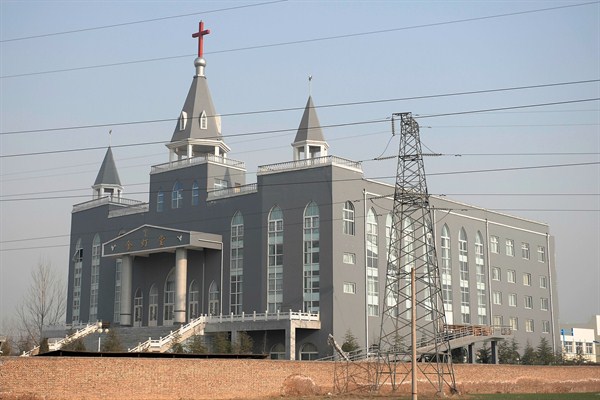Editor's Note: This article is part of an ongoing series about religious minorities in various countries around the world.
Last week, authorities in China demolished a prominent Christian megachurch in Linfen, an industrial city in one of China’s poorest regions. State police used dynamite and excavators to raze the church, which had a congregation of more than 50,000. It was the latest sign of a growing state backlash against religion in China, where the Communist Party is officially atheist and the practice of organized religion is tightly controlled. In an email interview, Yang Fenggang, a professor of sociology and director of the Center on Religion and Chinese Society at Purdue University, discusses how the state regulates different religious groups and how religious tolerance has evolved.
WPR: To what degree is the practice of organized religion tolerated or authorized in China, and what is the Chinese government’s approach to the institutions of organized religion?

